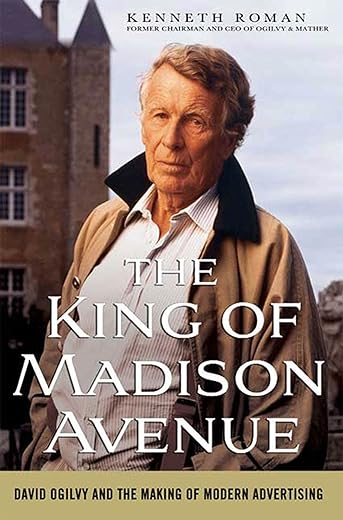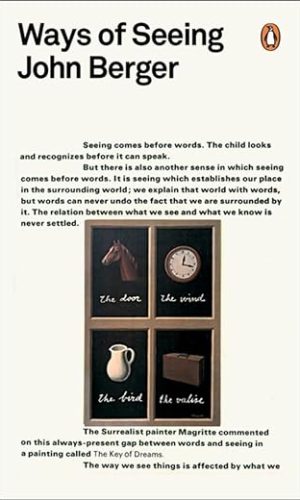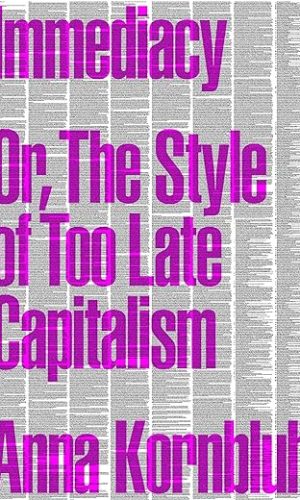The King of Madison Avenue: David Ogilvy and the Making of Modern Advertising
£19.20£19.90 (-4%)
Famous for his colorful personality and formidable intellect, David Ogilvy left an indelible mark on the advertising world, transforming it from a disreputable business into a dynamic industry full of passionate, creative individuals. This first-ever biography traces Ogilvy’s remarkable life, from his short-lived college education and undercover work during World War II to his many successful years in New York advertising. Ogilvy’s fascinating life and career make for an intriguing study from both a biographical and a business standpoint. Idiosyncratic, full of contradictions, and characterized by a powerful intellect, he redefined the business and became an icon within the advertising world, inspiring countless people to devote their lives to it. This biography is based on a wealth of material from decades of working alongside the advertising giant, including a large collection of photos, memos, recordings, notes, and extensive archives of Ogilvy’s personal papers.
Read more
Additional information
| Publisher | First Edition (23 Jan. 2009), Palgrave Macmillan |
|---|---|
| Language | English |
| Hardcover | 282 pages |
| ISBN-10 | 1403978956 |
| ISBN-13 | 978-1403978950 |
| Dimensions | 16.31 x 2.97 x 24.31 cm |










by S. Absia
This book allows you to follow the man behind the legend. If you want to get into the world of advertising or already in it, I recommend this book to inspire you. To trigger that spark.
by Jen Brannstrom
not informative.
Bloated language.
by Rolf Dobelli
Author and adman Kenneth Roman worked for and with David Ogilvy for a quarter century at Ogilvy’s groundbreaking ad agency Ogilvy & Mather. Thus, Roman is uniquely placed to understand Ogilvy in the context of his time and achievements. He presents Ogilvy’s life and work, and explains what both meant at the time and now. Despite some unevenness in Roman’s writing style and information flow, Ogilvy emerges as a singular hero in this saga of eccentricity, perseverance and native genius. getAbstract recommends this fast, insightful book to those who write advertising, those who want to, and those interested in the history of advertising and popular culture.
by Greg Waggett
Ken Roman’s biography on David Ogilvy is attracting a clutch of reviews in the media – which are on the whole very positive – and I think that The Financial Times has got it about right.
What can I add to any review? Not much – except a personal tale, which I daresay mirrors that of thousands.
Quite by chance, in 1983 I bought a book called Ogilvy on Advertising. And the first chapter started off with the words, `I do not regard advertising as entertainment or an art-form. When I write an advertisement, I don’t want you to tell me you find it creative. I want you to find it so interesting you buy the product.’ This clear statement of the process and purpose of advertising – not well understood by today’s advertising fraternity whose work is either largely characterised by vacuous imagery or defies comprehension – electrified me because I had an interest in writing, print layouts, typography and graphic design. This was something I could do. (And ultimately, it helped when it came to producing my own book.)
Thus inspired, in 1987 I moved to Cambridge and set up my own small ad agency.
Following a letter I sent him asking for permission to quote from his book, David Ogilvy and I corresponded regularly. He and two others, Bill Bernbach and Leo Burnett, had led the creative revolution in American advertising in the sixties. Thirty years later during his semi-retirement, David’s principles became the industry’s bedrock whenever it went through turbulent times and periods of self-doubt. And because he was indisputably one of the greatest admen of the twentieth century, I was not unnaturally greatly flattered by his interest in what I was doing – especially when he invited me over to France to his home, an estimable chateau in Touffou, a tiny little village near Poitiers. Always kind, warm and encouraging, none of which prevented him from being either didactic or terrifyingly blunt, I came to admire him more than anyone else I have ever known – and for reasons not just connected to advertising.
What is the point of this story? Ask yourself which other major player in advertising would have taken interest in someone like me. No one. It says a lot about him. It `differentiates’ him. It’s part of his brand. The new biography explains this thoroughly along with the stories about David’s prowess at making ads.
Ken Roman also gets across David’s paternalism – paternalism in the best sense – extremely well. And much else. There’s lots of new stuff here. One learns, or I did, that David Ogilvy’s influence went far beyond the creative aspects of early ad campaigns. His vision was cosmic.
A truly compelling biography, which eschews trivial tittle-tattle, written by someone who is no slouch when it comes to writing. Do read it.